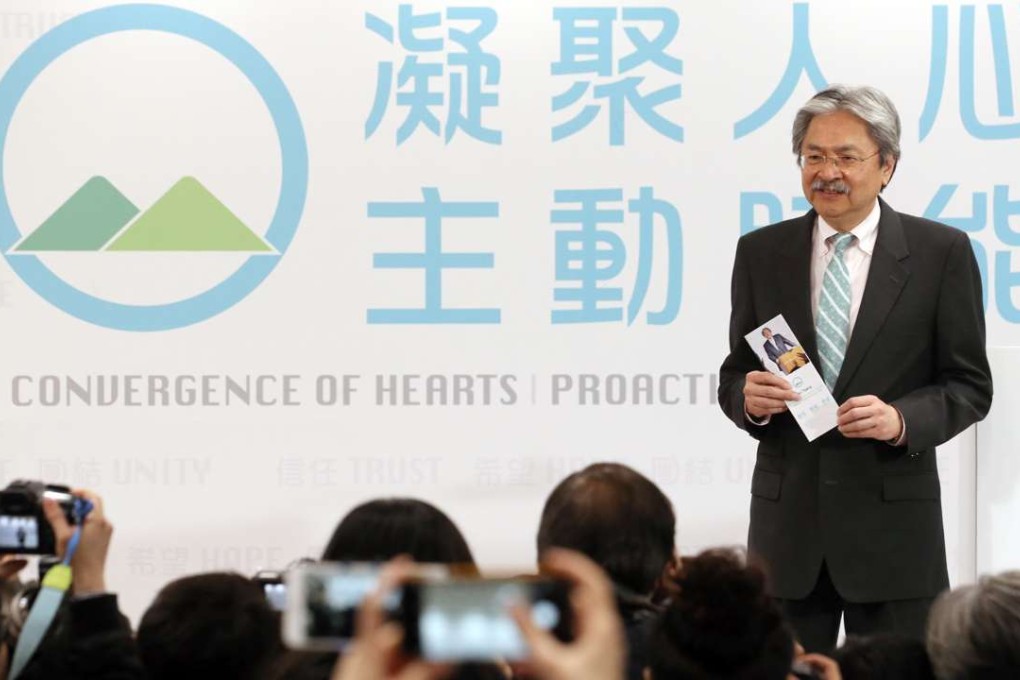John Tsang unveils election platform, covering issues from political reform to ‘negative income tax’
Despite overall liberal stance, former finance chief also promises to revisit contentious national security law in 75-page manifesto

Chief executive contender John Tsang Chun-wah has officially unveiled his election platform, taking a liberal stance on moving forward with the city’s democratic development yet at the same time vowing to relaunch the legislation of a contentious national security law.
In a 75-page election manifesto released on Monday morning, the former finance chief dropped a bombshell with his tax review proposals, saying his team would look into the possibility of introducing a progressive profit tax to lighten the burden on small and medium enterprises, and investigate the feasibility of a negative income tax to offer an allowance to people whose incomes fell below a certain level.
Tsang also pledged to improve the government’s accountability and placed specific emphasis on youth development and education, in a bid to win the hearts and minds of liberal and moderate pan-democrats.
For the sake of our society’s stability and good governance, we must therefore, with the greatest determination and courage, restart the process to amend the procedure to elect the chief executive during the next term of the government.
The former financial secretary, who had earlier said it would be irresponsible for the administration to restart political reform if the political climate remained unchanged, made a U-turn by promising to relaunch the process “with the greatest determination and courage” should he be elected.
There would be continual challenges to the government’s legitimacy without the realisation of universal suffrage, Tsang argued.
“For the sake of our society’s stability and good governance, we must therefore, with the greatest determination and courage, restart the process to amend the procedure to elect the chief executive during the next term of the government,” he wrote.
“I do not underestimate the difficulties of achieving consensus on political reform. But I believe if we can formulate a chief executive election plan which is acceptable to different quarters, that will be a big step forward for Hong Kong’s political system, and both Hong Kong people and ‘one country, two systems’ will be winners.”
He vowed to communicate closely with different groups and facilitate dialogue between these groups and Beijing in order to improve understanding and build consensus.